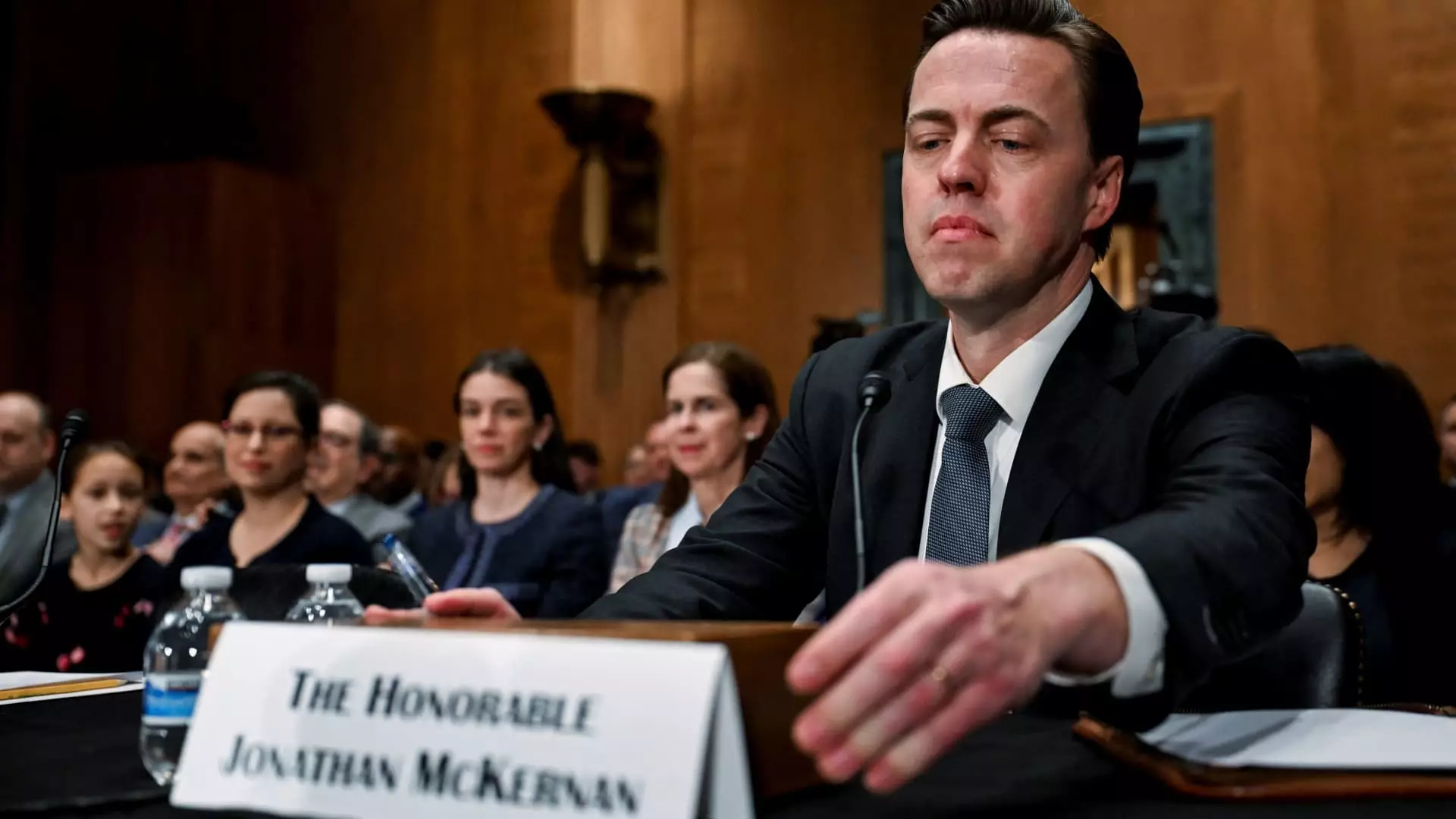On a pivotal day in the landscape of consumer finance, President Donald Trump’s nominee for the leadership of the Consumer Financial Protection Bureau (CFPB) faced intense scrutiny from Democratic senators. Jonathan McKernan, a seasoned figure with experience on the board of the Federal Deposit Insurance Corporation (FDIC), found himself under pressure as lawmakers questioned his commitment to uphold the agency’s mandate. This spectacle not only illustrated the fraught relationship between regulatory bodies and political agendas but also highlighted the challenges McKernan would face if confirmed.
During his testimony, McKernan reflected on the formative years of his legal career, coinciding with the onset of the 2008 financial crisis. This crisis is often cited as a catalyst for the creation of the CFPB, established with the mission of protecting consumers from predatory financial practices. McKernan’s statement underscored his belief in the importance of a regulatory system that serves everyday Americans—an ethos that must resonate with the agency’s core mission. However, it begs the question: how can the CFPB effectively fulfill this role amidst political contention and operational turmoil?
The Agency’s Current State Under Turmoil
The CFPB has recently faced monumental shifts under acting Director Russell Vought. The shuttering of its Washington headquarters and significant layoffs signal a dramatic change in direction as the agency grapples with allegations of potential extinction by those in power. The recent dismissal of multiple enforcement lawsuits, including those targeting large corporations like Capital One, raises alarms regarding the agency’s commitment to consumer protection. McKernan’s assertion that the CFPB must correct its so-called “crisis of legitimacy” further illustrates the urgent need for institutional reform in a challenging climate.
As senators like Elizabeth Warren confronted McKernan, the grilling focused not only on his qualifications but also on the potential impacts of the Trump administration’s policies on the CFPB’s mission. Warren’s pointed remarks underscored the perception that McKernan is being positioned as a figurehead at an agency potentially facing demise. Her vivid metaphor likening him to a “horse at the glue factory” poignantly encapsulates concerns around the effectiveness of his leadership in an agency under siege from both external and internal forces.
Throughout the proceedings, a critical focus remained on whether McKernan would maintain the legal obligations of the CFPB, such as sustaining websites for consumer complaints and advocacy offices for vulnerable populations like veterans and seniors. His assurance to follow the law highlighted a commitment to adherence that might resonate with proponents of consumer rights. Nevertheless, the environment in which these promises are made raises skepticism about their viability amid a political agenda seemingly favoring deregulation over consumer advocacy.
Senator Jack Reed’s comments about Vought’s intentions to eliminate the CFPB added a foreboding note to the proceedings. With questions raised regarding McKernan’s potential support and the future of the agency, many senators expressed concern that he might be “departing Liverpool on the Titanic.” This metaphor reflects a sentiment of impending disaster, casting doubt on whether McKernan could effectively navigate the bureaucratic waters ahead.
As the CFPB stands at a crossroads, McKernan’s potential confirmation promises a complex interplay between regulatory integrity and political maneuvering. While his legal expertise and stated commitment to the agency’s mission are encouraging, the realities of an administration that appears disinterested in consumer protection raise significant questions about the future of the CFPB. The true test will not be merely in his ability to lead but rather in overcoming the mounting obstacles that threaten the agency’s very existence. The ongoing saga of the CFPB will undoubtedly unfold in the coming months, with implications reverberating throughout American consumer finance.


Leave a Reply